Are you looking to elevate your academic contributions? Understanding the peer review process is essential to ensuring your research is not only credible but also impactful. In this article, we'll explore the importance of peer review, the benefits it brings to both authors and reviewers, and tips for crafting an effective invitation. So, if you're interested in enhancing your scholarly journey, read on!

Subject line
Invitation to Participate as a Peer Reviewer for Academic Journal Submission
Journal and article details
An academic peer review invitation is essential for maintaining the integrity and quality of research published in scholarly journals. The invitation typically specifies the journal's name, such as *The Journal of Advanced Research*, along with the article title, for instance, "Innovative Approaches in Renewable Energy Technologies." The submission date, found in the journal's editorial system, might indicate that the article was submitted on April 15, 2023. The invitation can also provide information about the thematic relevance of the article to the journal's focus, such as advancements in solar energy, wind energy, and energy storage solutions. The role of the invited reviewer includes critically assessing the research methodologies, data analysis, and overall contribution to the field, ensuring adherence to ethical standards and guidelines established by the journal, including the double-blind review process. This rigorous evaluation process enhances the credibility of published research, supporting the journal's aim to disseminate high-quality academic work.
Reviewer responsibilities and expectations
Peer review plays a vital role in maintaining the quality and integrity of academic publishing. As a reviewer, your responsibilities encompass critical evaluation of the submitted manuscript, focusing on originality, methodology, and overall contribution to the field. You are expected to provide constructive feedback that aids authors in enhancing their work, ensuring that your comments are clear and specific. It is essential to complete your review within the allocated timeframe, typically 2-4 weeks, while adhering to confidentiality guidelines, refraining from discussing the manuscript with others. Your expertise in the subject matter of the manuscript contributes significantly to the editorial decision-making process, helping to uphold the journal's academic standards. Adherence to ethical practices is crucial, including declaring any potential conflicts of interest that may influence your assessment.
Confidentiality and ethical considerations
Confidentiality in academic peer review processes is vital for maintaining the integrity of the research community. Reviewers must protect the confidentiality of the manuscript, including sensitive data and unpublished findings presented by authors. Ethical considerations also extend to avoiding conflicts of interest, ensuring unbiased evaluations of the work. Reviewers should declare any relationships that could influence their judgment, upholding the ethical standards outlined by institutions and journals. Adherence to these principles fosters a trustworthy environment for scholarly communication, promoting constructive feedback and the advancement of knowledge within the academic field.
Response deadline and acceptance process
Academic journals often outline detailed guidelines for peer review invitations, which include critical elements such as response deadlines and the acceptance process. A typical response deadline may fall between two to four weeks post-invitation to provide adequate time for potential reviewers to assess their availability. Reviewers are generally informed about the acceptance process, which often involves a double-blind review protocol ensuring anonymity between authors and reviewers. Accepted submissions gain precedence in regional or international academic conferences. Reviewers may also receive feedback on their evaluations, enhancing their future contribution to scholarly discourse within their respective fields.
Letter Template For Academic Peer Review Invitation Samples
Letter template of academic peer review invitation for a research journal.
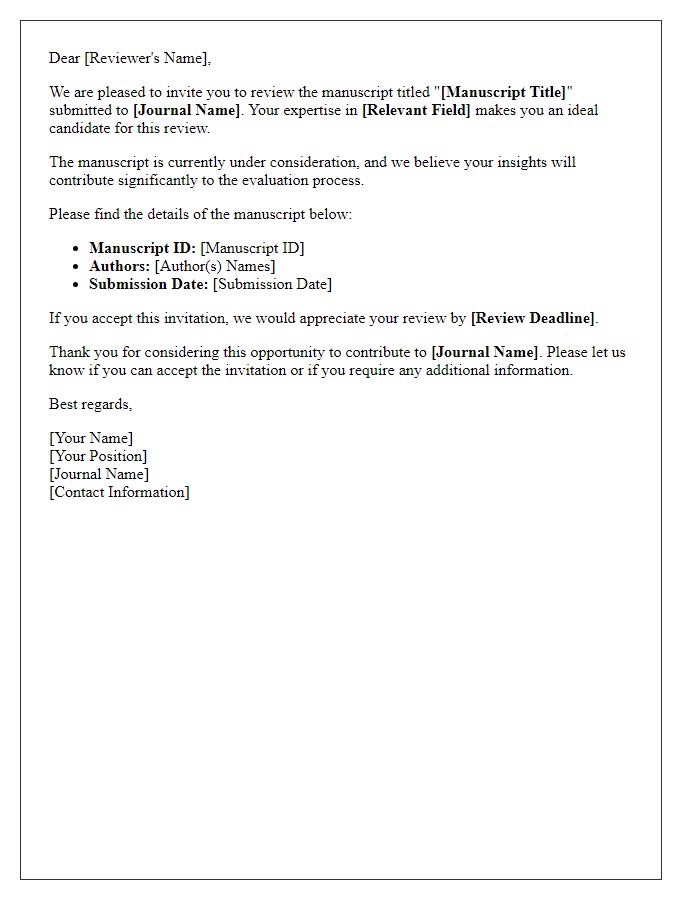
Letter template of academic peer review invitation for a conference submission.
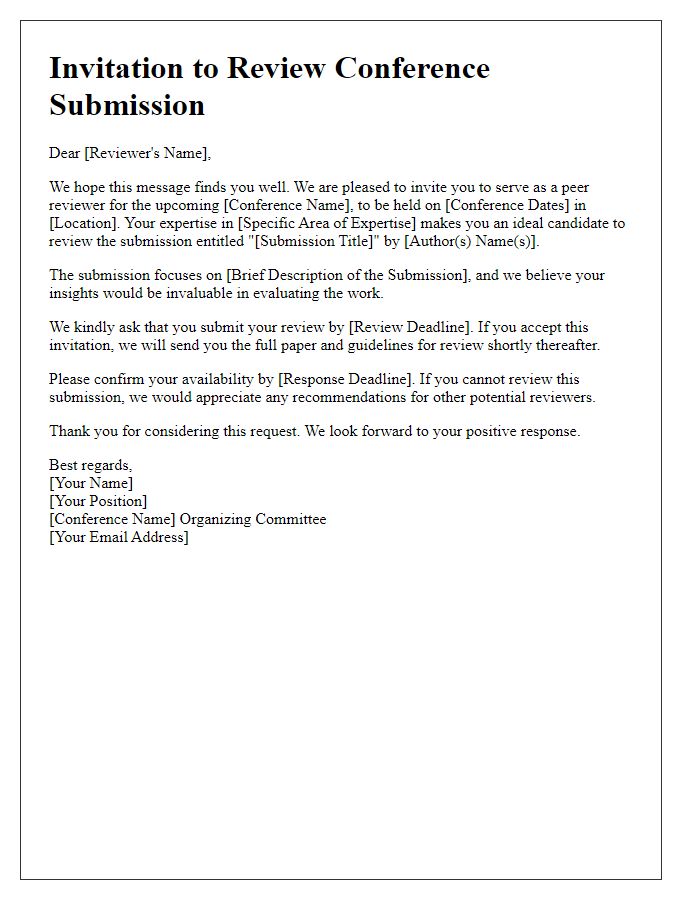
Letter template of academic peer review invitation for an international journal.
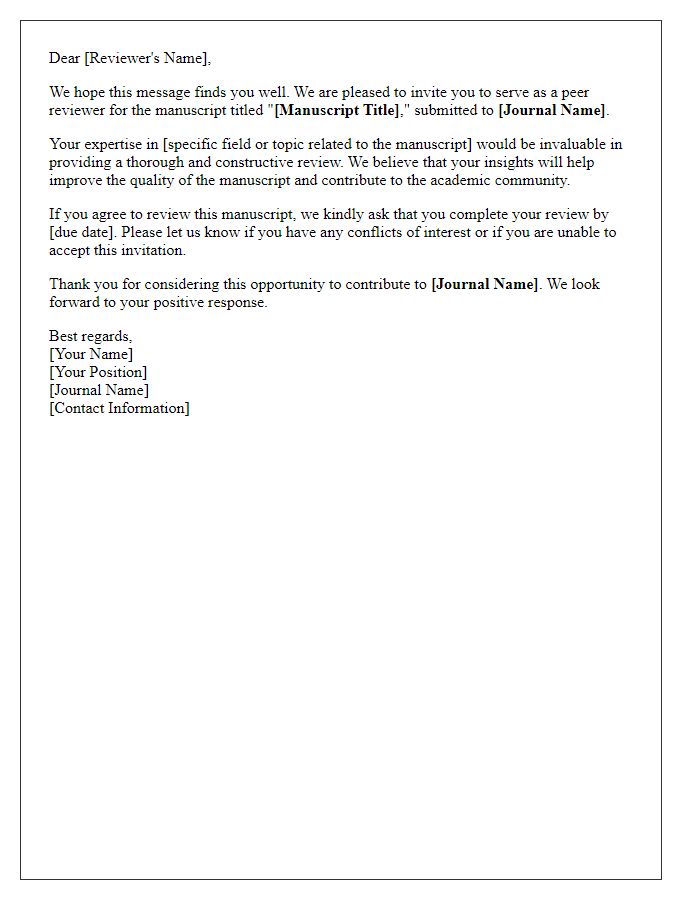
Letter template of academic peer review invitation for a multidisciplinary publication.
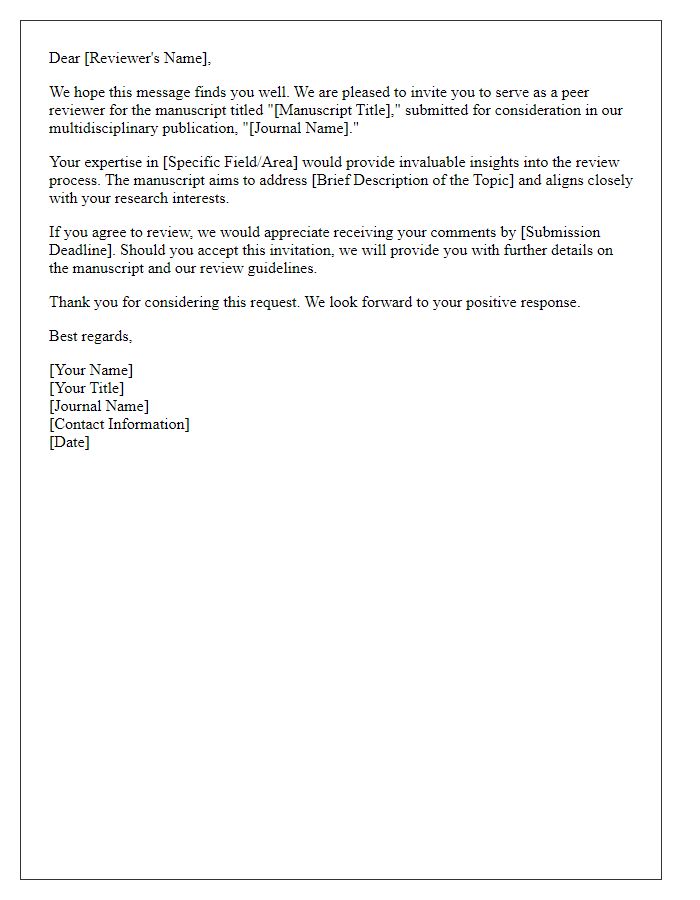
Letter template of academic peer review invitation for a technical paper.
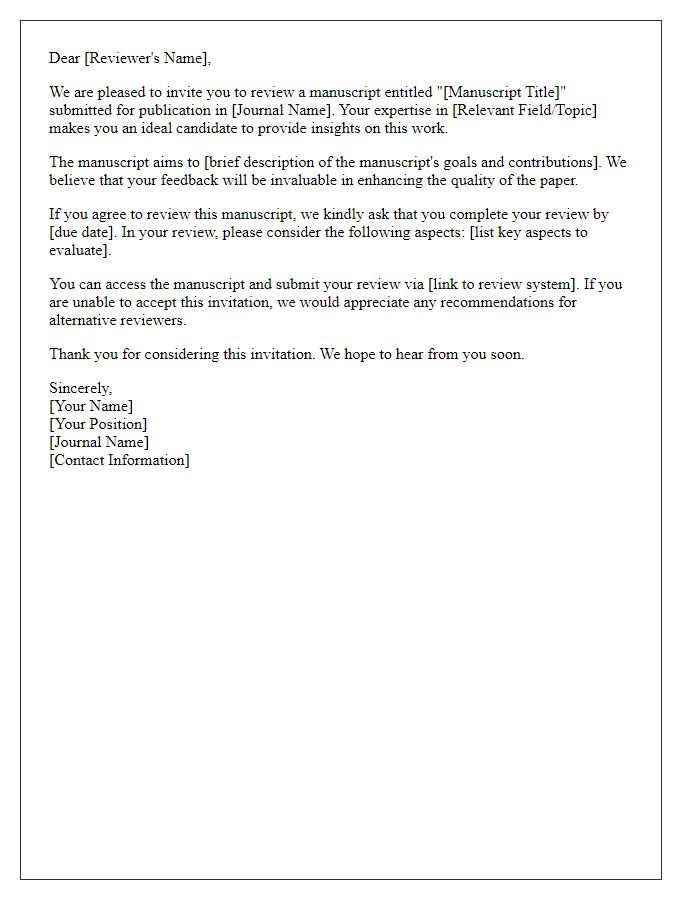
Letter template of academic peer review invitation for a thematic journal.
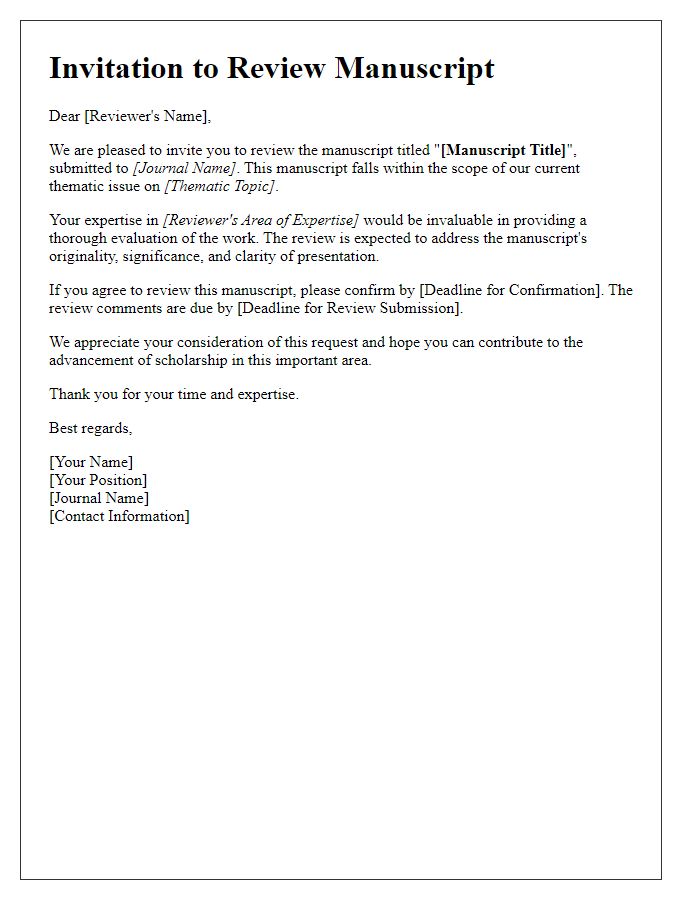
Letter template of academic peer review invitation for a graduate thesis review.
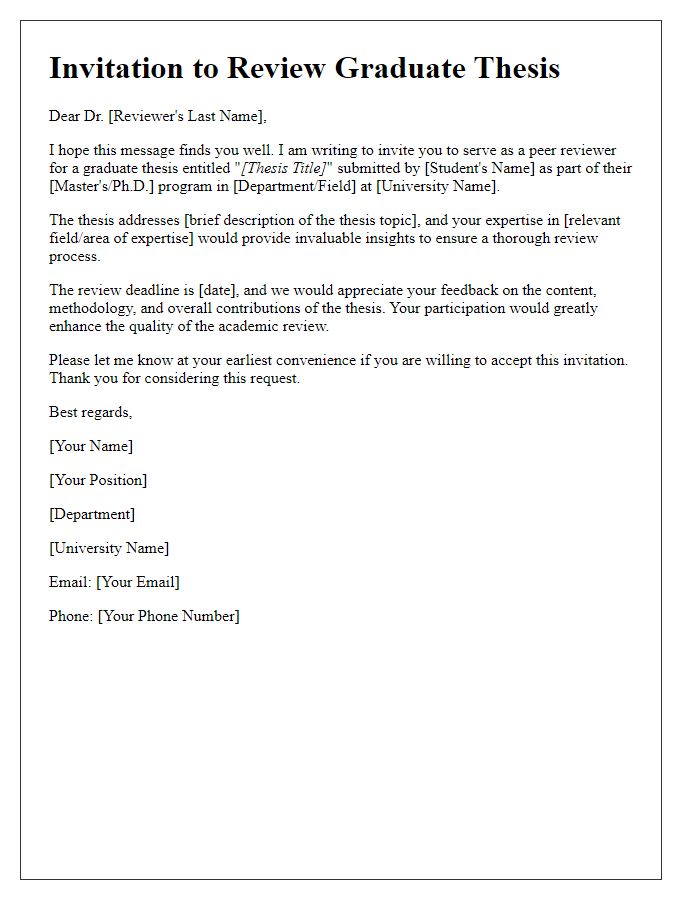
Letter template of academic peer review invitation for a manuscript review.
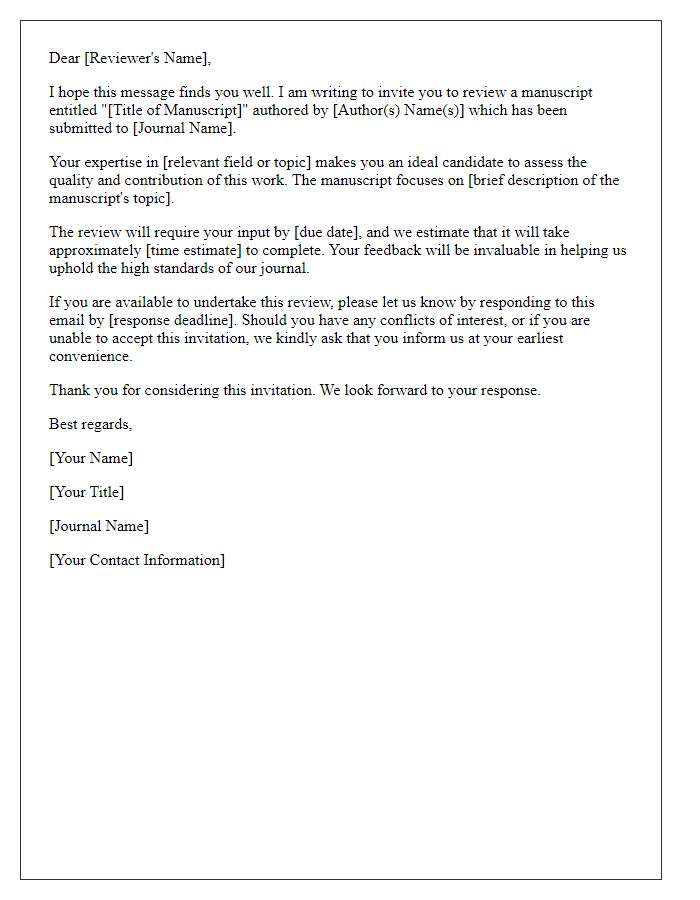

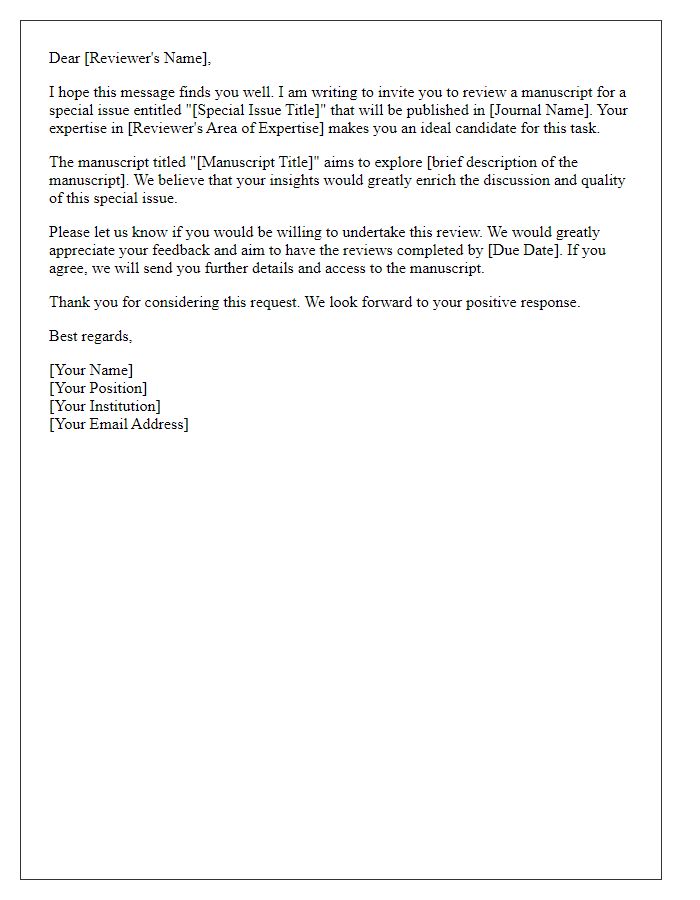
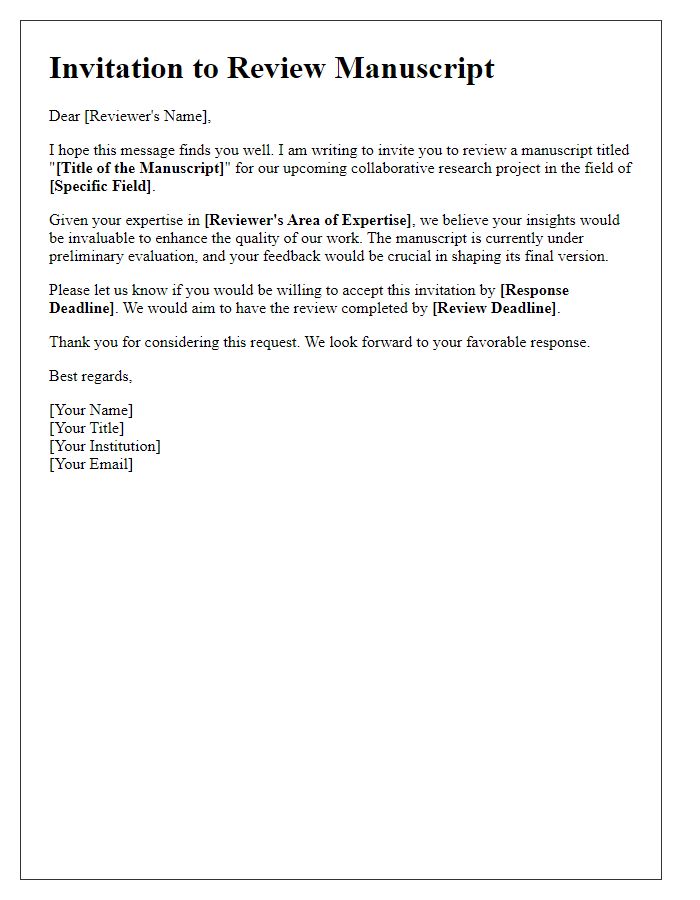


Comments